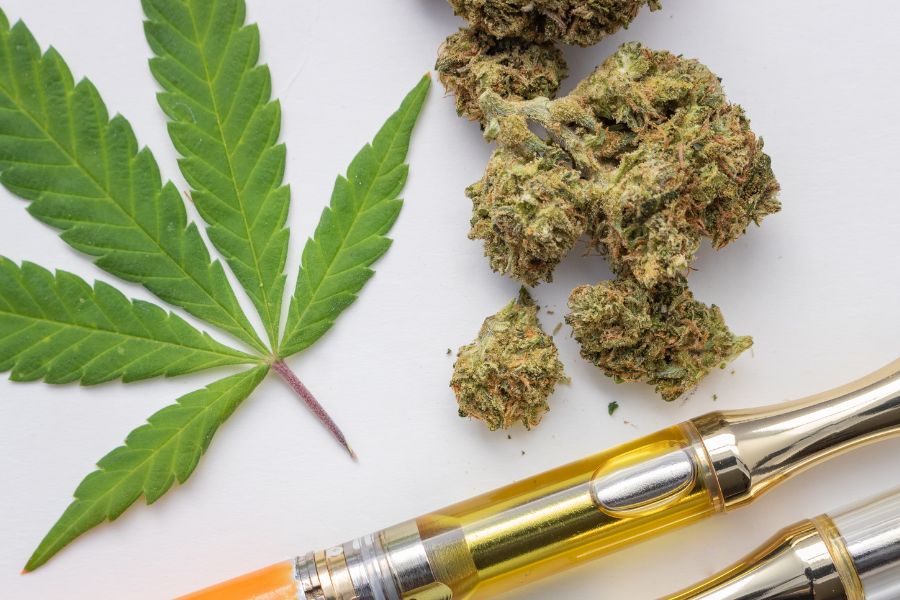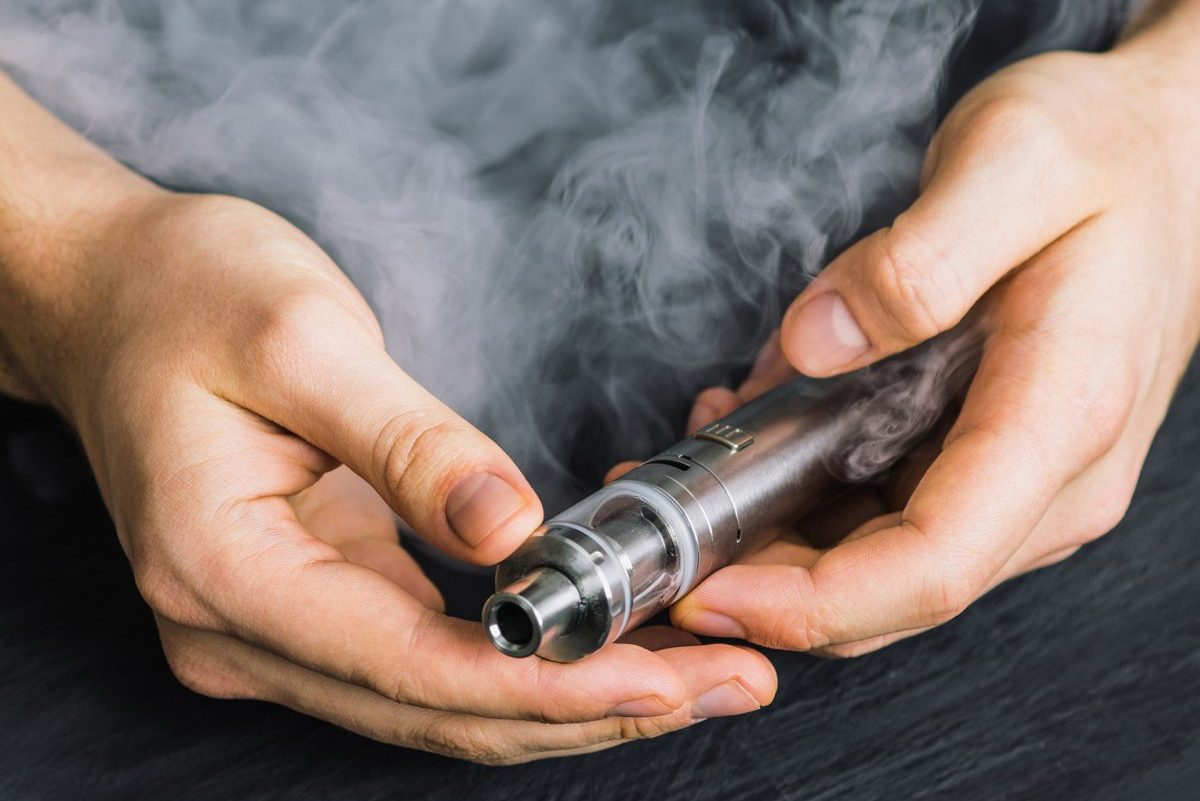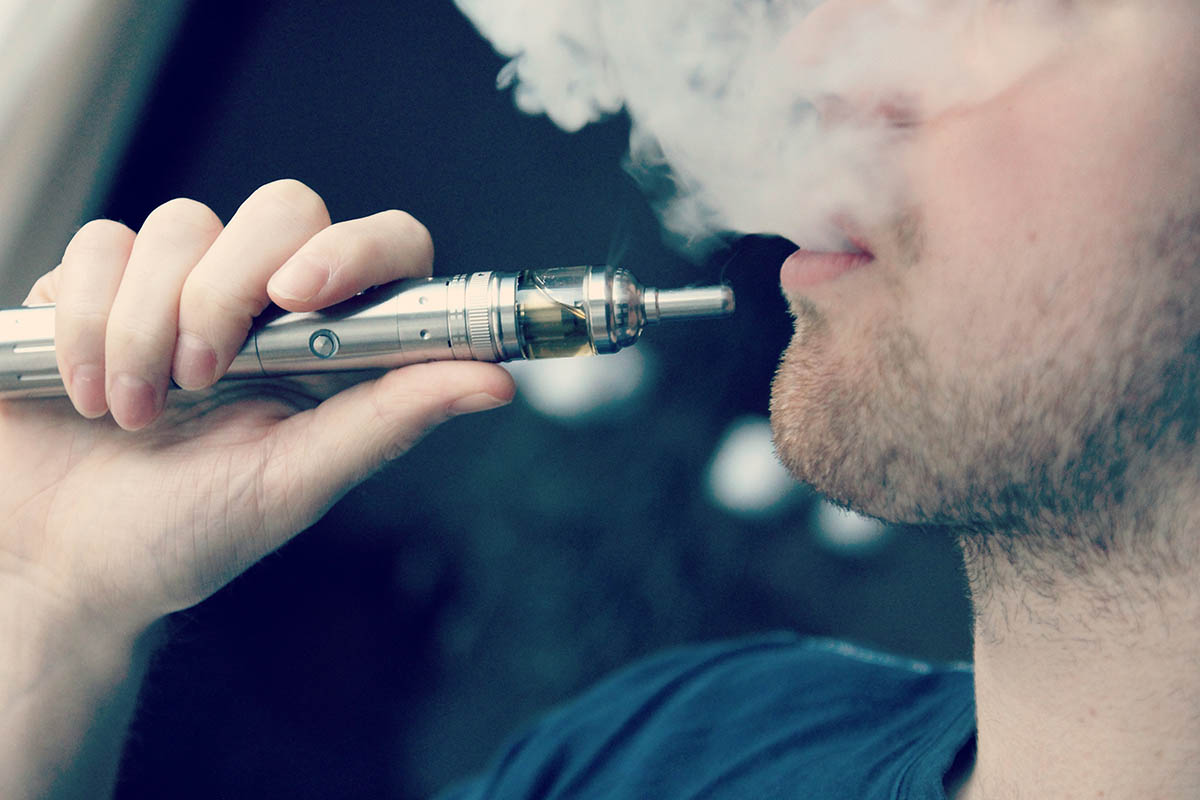Understanding the Difference Between CBD Vs. Delta 8 THC
People conversant with hemp-derived CBD products have possibly heard of CBD and Delta 8 THC. While they are similar in certain ways, their chemical structures differ.
We want to help you make an informed decision, so let’s explore the differences between these two compounds.
To better understand what makes CBD and delta 8 THC unique, first, we need to look at the biochemistry behind each one. CBD is a phytocannabinoid found in the cannabis plant, while delta 8 is a synthetic version of THC.
Though they have similarities, understanding their differences will help you decide which one might be best for your needs. In this article, we’ll explain exactly what these two hemp-derived compounds are—and what makes them unique.
So don’t worry if you feel like you’re out of your depth! We’ll remedy that.
What Is Delta 8 THC?
If you’re getting into the cannabis space and hearing about cannabinoids, you may have noticed that Delta 8 THC keeps popping up. Of course, it’s different than your classic cannabinoid, CBD, but what exactly is Delta 8 THC?
Delta 8 THC is a form of Tetrahydrocannabinol (THC), one of the cannabis compounds, and hemp. However, it has a slightly different molecular structure, resulting in other effects than your typical THC.
Delta 8 and standard THC interact with the same endocannabinoid receptors in the body — CB1 receptors found in the brain and CB2 receptors scattered throughout the other parts of the body — but they do so in different ways.
This is why people tend to experience a higher “high” with Delta 8 than with the classic strain of THC. For many people, Delta 8 tends to be milder while still giving that “euphoric” feeling similar to other cannabinoids like CBD.
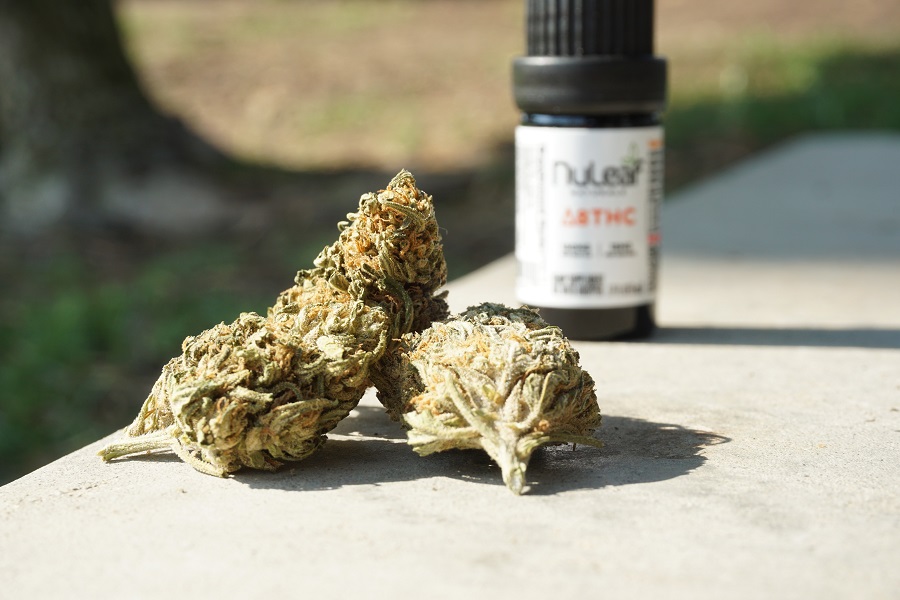
How Does It Work?
Delta 8 THC is a different cannabinoid found in hemp extract that binds to the CB1 receptors in the brain. However, it does provide some psychoactive effects because of its affinity for these receptors.
Still, it is considered non-intoxicating compared to its sister cannabinoid Delta 9 THC (known for its mind-altering effects). Delta 8 THC provides therapeutic benefits like relaxation, increased appetite, and energy levels.
Due to its binding with brain receptors, Delta 8 THC has therapeutic and mild psychoactive benefits.
What Are The Benefits?
The benefits of both CBD and Delta 8 are often touted, but what are they?
Delta 8 THC is a different cannabinoid found in cannabis plants that share many similar characteristics with the more popular Delta 9 THC.
- Stimulates appetite – making it helpful for those undergoing chemotherapy treatments
- Stimulating creativity
- Suppressing nausea more effectively than CBD alone
- Possesses anxiolytic effects that relieve anxiety and stress
- Contains pain-relief properties for chronic pain
- It prevents brain damage due to its neuroprotective properties
Drawbacks Of Using Delta 8 THC
While Delta 8 offers potential benefits, Delta 8 has adverse effects you should be aware of before using.
Potency
Unlike CBD, Delta 8 has a lower potency. Therefore, you may need to take higher doses than CBD to experience its effects. Additionally, because its effects don’t last as long as those from CBD, you may need to take more frequent doses.
Lack of Regulation
Because Delta 8 THC is still a new compound, there is little regulation around its production and sale. This means that consumers may not know what they are getting when they purchase Delta 8 THC products, and the quality and safety of these products may vary widely.
There are no standardized testing or labeling requirements for delta 8 THC, meaning consumers may be taking risks with their health.
Unknown Long-Term Effects
Delta 8 THC has not been extensively studied, and its long-term effects on human health are largely unknown.
While it is believed to have fewer psychoactive effects than Delta 9 THC, there is still a risk of addiction and dependence with Delta 8 THC.
In addition, delta-8 THC may have potential side effects such as dry mouth, red eyes, dizziness, and impaired motor skills. Hence, approach Delta 8 THC cautiously and consult a healthcare professional before using it for medical purposes.
People are more wary of it now because poison control centers in the USA have recorded an uptick in adverse events related to Delta 8.
What Is CBD?
Did you know there’s a big difference between CBD and Delta 8 THC? You can find both in hemp plants but have very different effects.
CBD is short for cannabidiol. It’s one of over 100 compounds in hemp and cannabis sativa plants called cannabinoids. And it’s the most abundant cannabinoid you’ll discover in hemp. Unlike THC, it doesn’t have intoxicating effects, so you won’t get high using it.
CBD binds with receptors in the brain to create an effect known as homeostasis. When taken regularly, it helps your body maintain balance. It also reduces stress and anxiety, increases sleep quality, and even treats inflammation. In addition, CBD interacts with the endocannabinoid system responsible for managing pain signals, thus relieving pain in users.
CBD is generally sold in two forms: full-spectrum or isolate. Full-spectrum includes other cannabinoids from the hemp plant—including tiny amounts of THC. Whereas isolate products contain only CBD without any other compounds.
There are many ways to ingest cannabidiol, like CBD gummies, chocolates, oils, etc. The choice is up to you, depending on what effect you want from your hemp-derived CBD products!
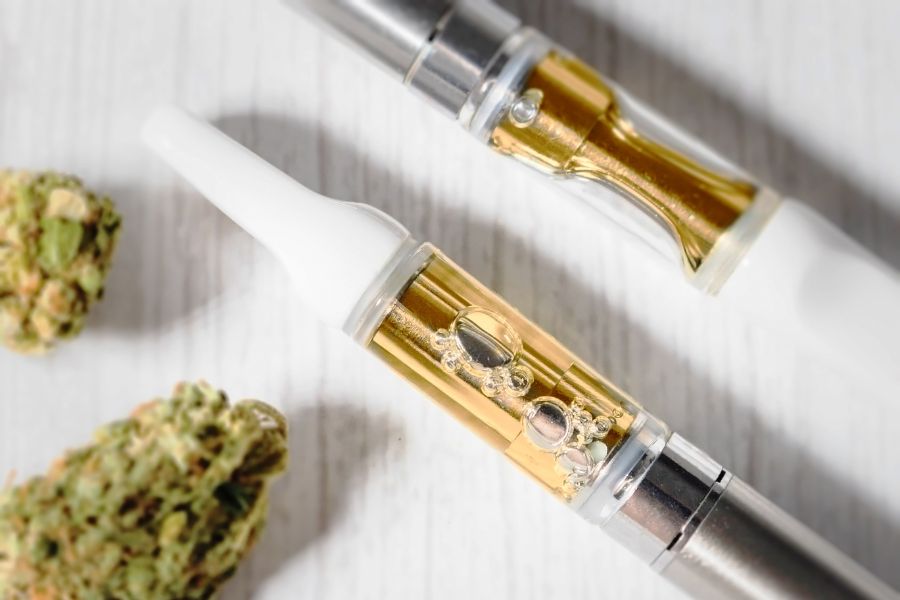
How Does CBD Work?
Now that you understand the difference between CBD and Delta 8 THC, you may wonder how CBD oil works in the body. Well, here’s what you should know:
CBD interacts with specific receptors in the endocannabinoid system—CB1 and CB2 receptors. These receptors are found throughout the body, including in the immune, brain, and digestive systems. When CBD binds to these receptors, it stimulates them and triggers certain reactions related to that particular receptor.
Health Benefits
For example, when CBD interacts with CB2 receptors in the immune system, it can help reduce inflammation. It can also interact with neurotransmitters like serotonin or GABA in cognition, pleasure, and coordination processes. This is why some people may use CBD to help with anxiety or chronic pain relief.
Moreover, studies have suggested that CBD may be beneficial for treating various conditions, including depression, Parkinson’s disease, Alzheimer’s disease, and multiple sclerosis.
What Are The Benefits?
Ready to learn about the benefits of CBD and Delta 8 THC? It’s time to examine what traditional cannabis products can do for you.
- Relieving stress, anxiety, and depression
- Supporting a healthy sleep cycle
- Reducing inflammation in the body and aiding in muscle recovery
- Keeping focus and mental clarity
- Helping with physical pain relief
- Supporting digestive health and promoting gut health
- Reducing acne and improving skin health
- Boosting the immune system
Drawbacks Of Using Cannabidiol
You know what they say, everything has an advantage and disadvantages; CBD oil is no exception.
The most common one is that it can be expensive, so it may not be the best choice if you’re on a budget. Additionally, there can be trace amounts of THC in some CBD products, usually less than 0.3%. But it’s still possible to fail a drug test using certain CBD products.
Another downside is that CBD is not always the most efficient way to get your dose of cannabinoids.
Your body needs time to metabolize CBD before it takes effect, making the effects of taking CBD slower and less potent than with Delta 8 THC.
That said, if you’re looking for something with a gentler effect, then CBD would be the better choice for you.
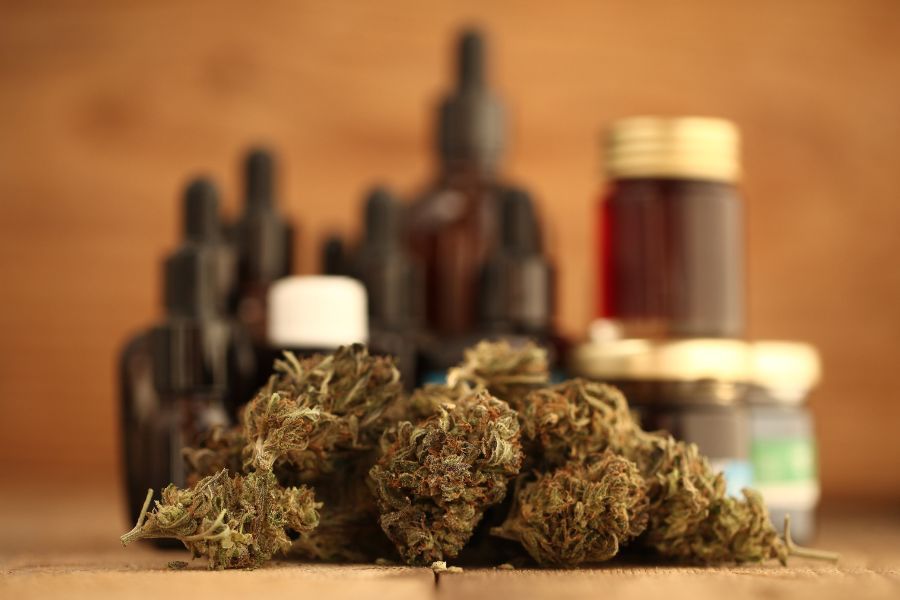
The Similarities Between CBD and Delta 8 THC
CBD and Delta 8 THC are two different compounds but similar. For one thing, they both come from the cannabis plant. Moreover, research suggests that CBD and Delta 8 THC have anti-inflammatory properties.
But the similarities don’t end there. Both compounds have been found to have antidepressant effects, with Delta 8 THC having an even stronger impact than CBD, according to one study.
They’ve also been proven to treat people struggling with anxiety. In addition, preclinical animal trials suggest that CBD and Delta 8 THC could also have neuroprotective properties.
That said, lots of research is still needed before we can make more definitive statements about the effects of either compound on humans. If you decide to try either compound or both, talk to your doctor before starting any new routine.
The Key Differences Between CBD and Delta 8 THC
While both compounds can be extracted from the hemp plant, they differ. Let’s dive into the differences between them:
Psychoactive Properties
The most notable difference between CBD and Delta 8 THC is that Delta 8 THC is psychoactive, meaning it has the potential to produce a high. On the other hand, CBD does not have any psychoactive effects.
Legal Status
Another important difference between these two compounds is their legal status. While CBD is widely available and legal in many countries, Delta 8 THC remains illegal in many countries due to its psychoactive properties. Thus, always check your local laws before using any product containing Delta 8 THC.
Health Benefits
Regarding health benefits, both compounds offer a range of potential benefits. For example, research suggests CBD may have possible anti-inflammatory and anti-anxiety effects, while Delta 8 THC may have anti-nausea and appetite-stimulating effects. However, research into Delta 8 THC is ongoing, and its health benefits remain largely unproven.
So there you have it—a high-level overview of the key differences between CBD and Delta 8 THC!
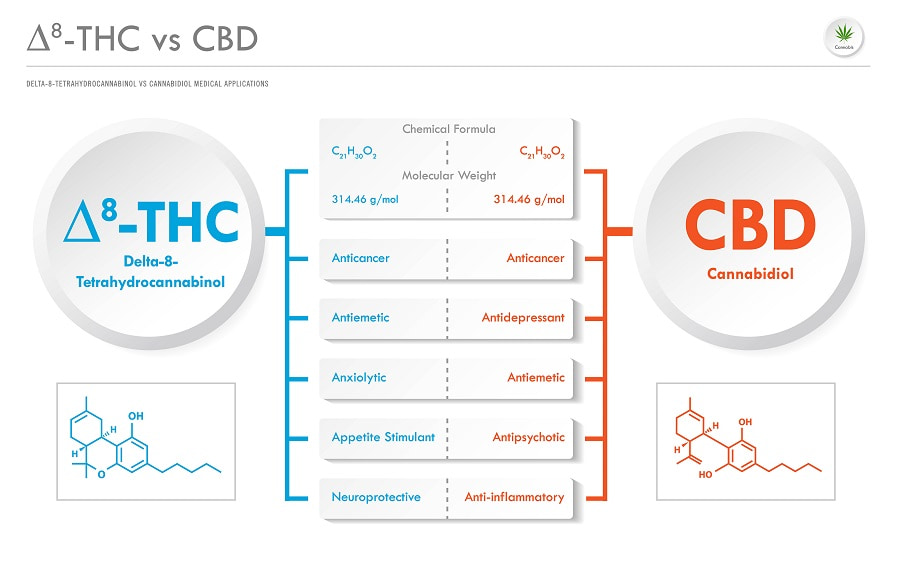
Are CBD and Delta 8 THC Legal? Understanding the Laws
The legality of CBD and Delta 8 THC is probably one of the most confusing topics. After all, there’s a big difference in the legal status of CBD and Delta 8 THC in many states and countries.
To complicate matters, state and federal laws are constantly changing. So it’s best to stay on top of any updates or changes in your location.
That said, here’s a quick look at the current laws:
Laws Regulating CBD vs. Delta 8 in the USA
- CBD is legal at a national level in the United States—as long as it’s derived from hemp with less than 0.3% THC content by dry weight
- Delta 8 THC is legal on a federal level but may be prohibited in some states.
- Other types of cannabis-derived products may not be allowed in certain states or countries.
- It’s essential to check both state laws AND federal laws before using any product derived from cannabis, including CBD and Delta 8 THC.
No matter where you live, it’s important to understand the law when buying CBD or Delta 8 THC. Stay safe and keep informed!
Regulations Of CBD vs. Delta 8 THC in Canada
- CBD oil is legal in Canada and can be sold and purchased by adults.
- Delta 8 THC is a controlled substance in Canada subject to the Controlled Drugs and Substances Act (CDSA).
- Delta 8 THC is classified as a Schedule III substance under the CDSA, meaning producing, selling, or possessing without a license or prescription is illegal.
- Licensed producers can produce and distribute Delta 9 THC with a maximum potency of 30 mg per milliliter. But Delta 8 THC oil is not currently authorized for production or distribution.
- Health Canada has issued warnings about the risks associated with consuming Delta 8 THC, including impaired driving and increased heart rate and blood pressure.
- CBD oil products must comply with the requirements of the Cannabis Act and its regulations. This primarily includes limits on THC content, labeling and packaging requirements, and restrictions on advertising and promotion.
Bottom Line
The differences between CBD and Delta 8 THC are outlined to make it easy to see why many people opt for either CBD or Delta 8 THC for their health and wellness needs.
While both have benefits, it is ultimately up to the individual to decide which is best for their needs.
CBD is an excellent choice for those who want non-psychoactive, while Delta 8 THC is best suited for those looking for a more direct experience and more powerful effects.

